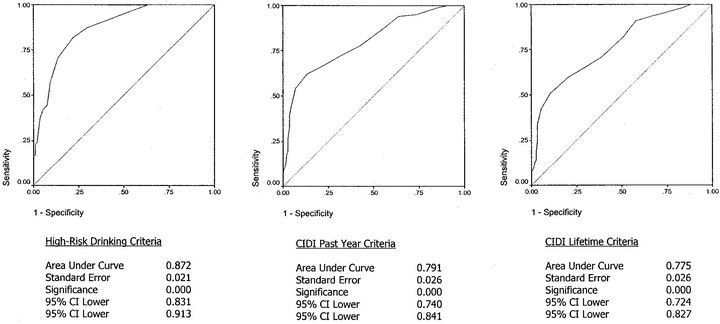
Abstract
BACKGROUND: High-risk alcohol use among college students is associated with accidents, partner violence, unwanted sexual encounters, tobacco use, and performance issues. The identification and treatment of high-risk drinking students is a priority for many college campuses and college health centers. The goal of this study was to test the psychometric properties of the Alcohol Use Disorders Identification Test (AUDIT) in college students. METHODS: A convenience sample of students coming into a college health clinic was asked to complete the 10-question AUDIT and then participate in a research interview. The interview focused on assessing students for alcohol abuse and dependence by using the Composite International Diagnostic Interview Substance Abuse Module and timeline follow-back procedures to assess a 28-day drinking history. RESULTS: A total of 302 students met the eligibility criteria and agreed to participate in the study. The sample consisted of 185 females (61%) and 117 males (39%), with a mean age of 20.3 years. Forty students were abstinent, 88 were high-risk drinkers, and 103 met criteria for a 12-month history of dependence. Receiver operator curves demonstrated that the AUDIT had the highest area under the cure for detecting high-risk alcohol use (0.872) and the lowest for identifying persons with a lifetime history of alcohol abuse or dependence (0.775). An AUDIT cutoff score of 6 or greater demonstrated a sensitivity of 91.0% and a specificity of 60.0% in the detection of high-risk drinkers. CONCLUSIONS: The AUDIT has reasonable psychometric properties in sample of college students using student health services. This study supports the use of the AUDIT in this population.